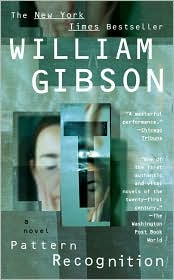What were some of your literary inspirations for America Pacifica?Visit Anna North's website.
While I was writing America Pacifica, I was also reading a lot of noir fiction -- Raymond Chandler, Dashiell Hammett, Jim Thompson. These writers influenced me a lot, especially in their pacing and the isolation their main characters feel. The detectives in noir novels often face danger at every turn and feel like outsiders wherever they go, and I thought about them a lot when I waswriting about Darcy's search for her mom. I was also deeply inspired by Neal Stephenson's The Diamond Age, which is about a young woman who's raised by a book. I loved its dystopian setting -- I've always devoured stories of gritty futures -- but more than that, I was attracted to the story of a girl from difficult circumstances who grows up to be a hero. I've long been really interested in what makes a person become heroic, what shapes her into someone with the ability to make history. So in addition to The Diamond Age, I've been influenced by quest narratives like The Odyssey and Arthurian legends.
How much did you think about politics when writing the book? What are its political implications?
I was really interested in the choices people would have to make after the ice age hit, and I ended up focusing on the decision between trying to preserve life as it once was or living in an entirely new way. This decision becomes intensely political because it's not possible to preserve the old life for everyone -- there are only enough resources to provide baseball, beef, and apples for a wealthy few. But to give all that up, to say no one's going to eat a hamburger or...[read on]
--Marshal Zeringue




























